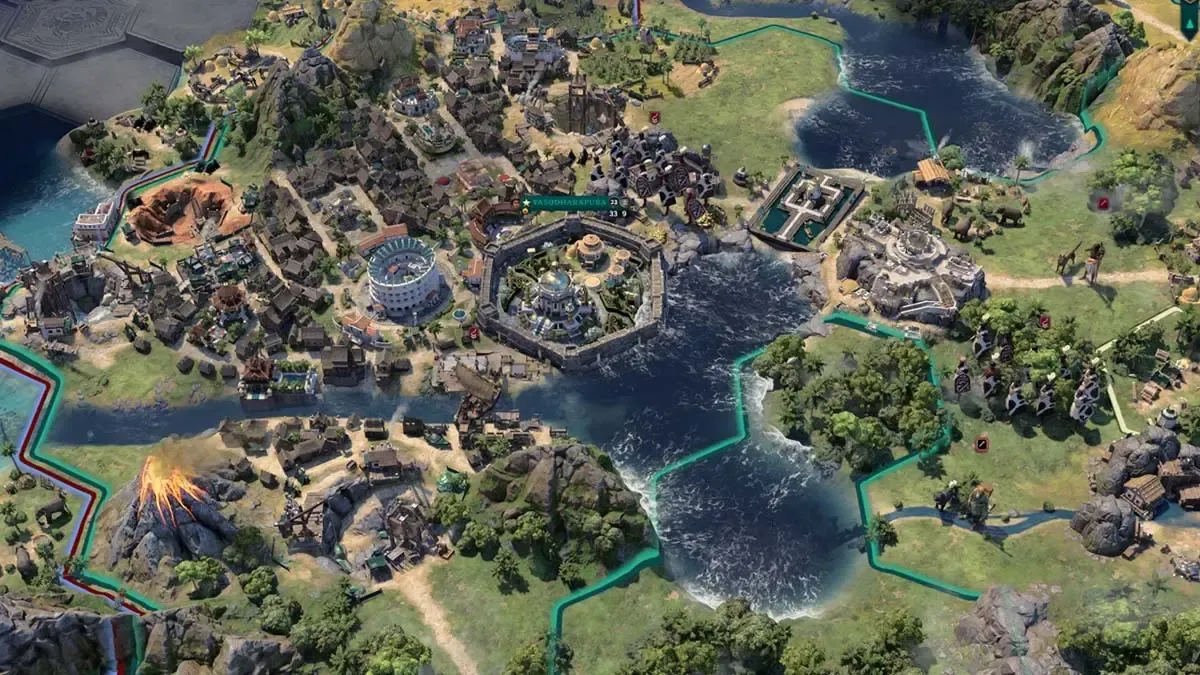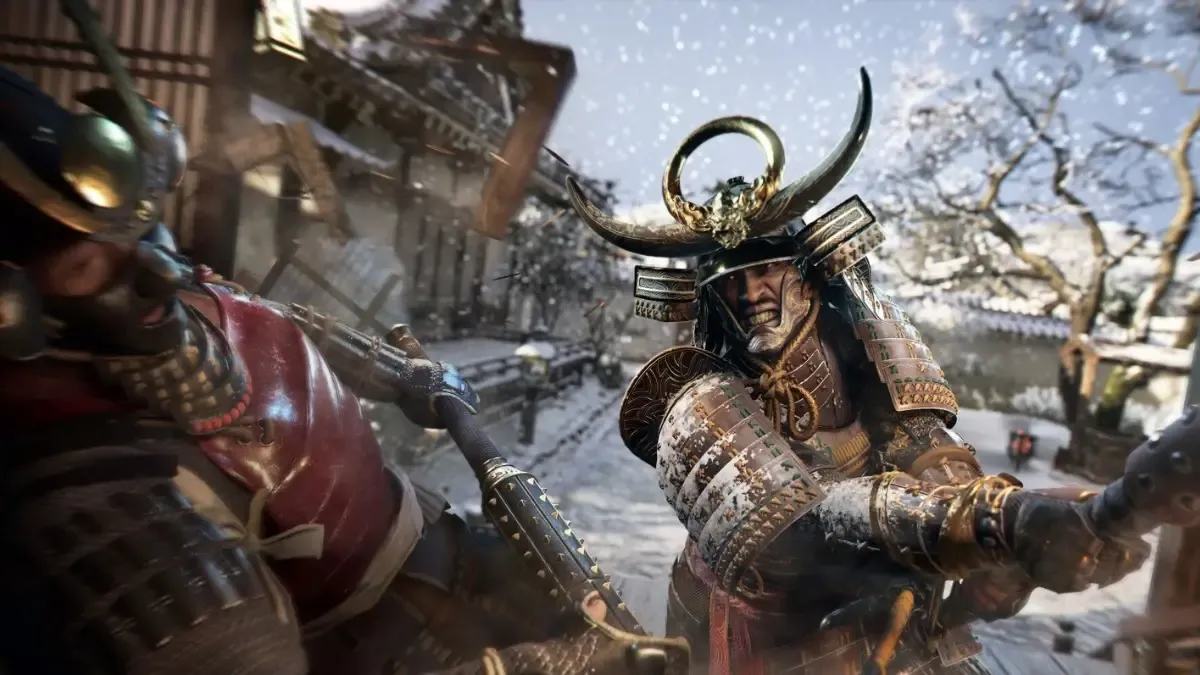Image: Firaxis Games
Here are our thoughts from an early preview of Civilization VII.
Sid Meier’s Civilization VII is releasing in a few weeks’ time on 11 February, 2025, and GosuGamers was invited to have a first look at the next iteration of arguably the most popular 4X game franchise in existence, and talk to a few members of Firaxis Games' development team.
Based on initial gameplay reveal videos released online, Civilization VII looked set to be very different from its predecessors, with a massive (and highly controversial) change to the franchise: players no longer control one civilisation throughout the whole game. According to Dennis Shirk, executive producer at Firaxis Games, the team wanted to break the wheel with Civilization VII, and give Civilization players something “completely new to chew on and try."
And they really meant it. When booting up Civilization VII for the first time, it was immediately obvious that the game was going to be a fresh experience, even for franchise veterans. The introduction video was so realistic that I thought it was live action for a brief moment, before I was greeted with an interface that felt a little foreign, after having played Civilization VI for many years.
Starting a new game
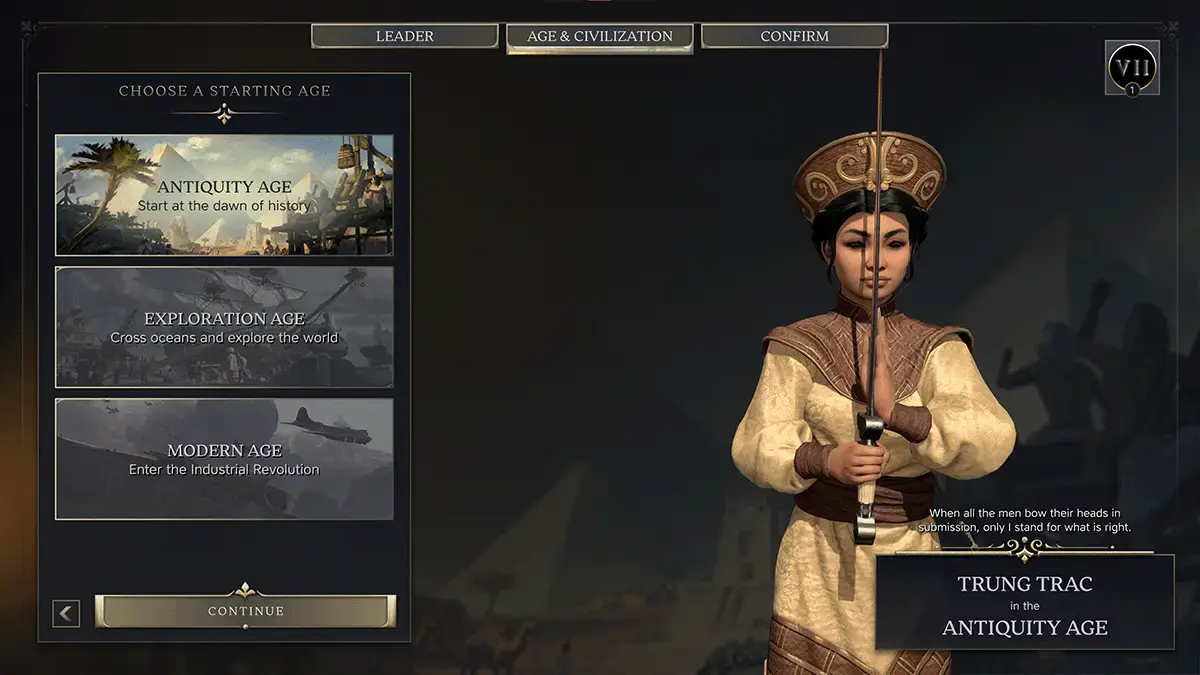
Loading up a new game, I had to first choose a leader before deciding on the age (out of the three available options) I wanted to start in, and subsequently, the civilisation of my choice. This results in a plethora of combinations of leaders and civilisations a player can have in different ages. These combinations have ramifications down the line, but some go-to civilisations are always going to be preferable, so players can complement the unique abilities of each leader. That said, once a player chooses a leader, the leader remains the same across all ages.
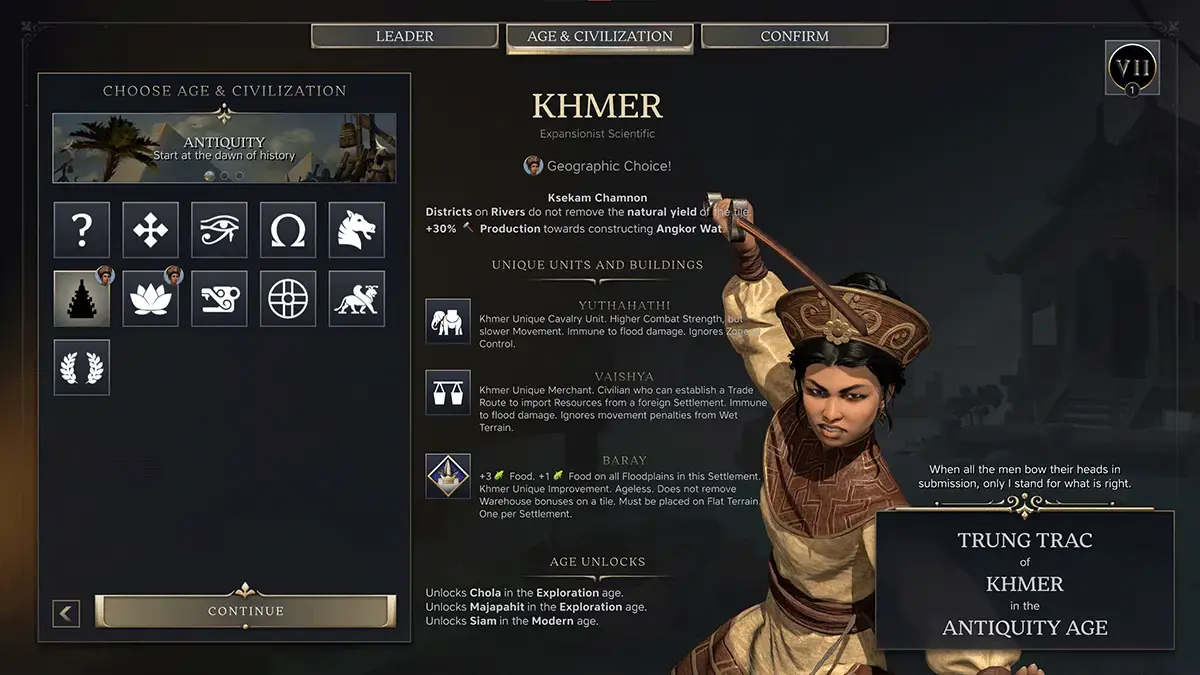
Speaking of ages, the game now also runs in three very distinct ages. These are: Antiquity, Exploration, and Modern (in temporal order). Players can start from any age, but if they want the full Civilization experience, they should start from the Antiquity age, which then progresses to the Exploration age before the game culminates in the final Modern age.
The end of each age comes with its own new set of challenges, before players transition to the next age and select a new civilisation. since each age comes with its own set of unique civilisations (more on this later). Quick note: for this early preview, we only have access to the game starting from the Antiquity age to the end of the Exploration age.
Why does the new Age system work this way?
This huge change in having different ages and civilization choices in Civilization VII is partly due to player feedback. Edward Zhang, senior game designer and economics feature lead at Firaxis Games, explained that in previous iterations of Civilization, campaigns tend to get boring midway because the players either find themselves already winning or losing.
With the new age system, players could be winning and losing by the end of each age, but the game can then “reset you and send you into the next age." This results in players having very focused games each time they dive in,
It might even set the tone for competitive play, as players can now simply battle it out in just one age in multiplayer mode. This means a shorter 3 to 4 hours of Civilization competitive play that is more conducive for an audience. Previous iterations of competitive play were, according to Edward, a “bladder contest” where it became a competition to find out who can sit down the longest.
Early impressions on Civilization VII
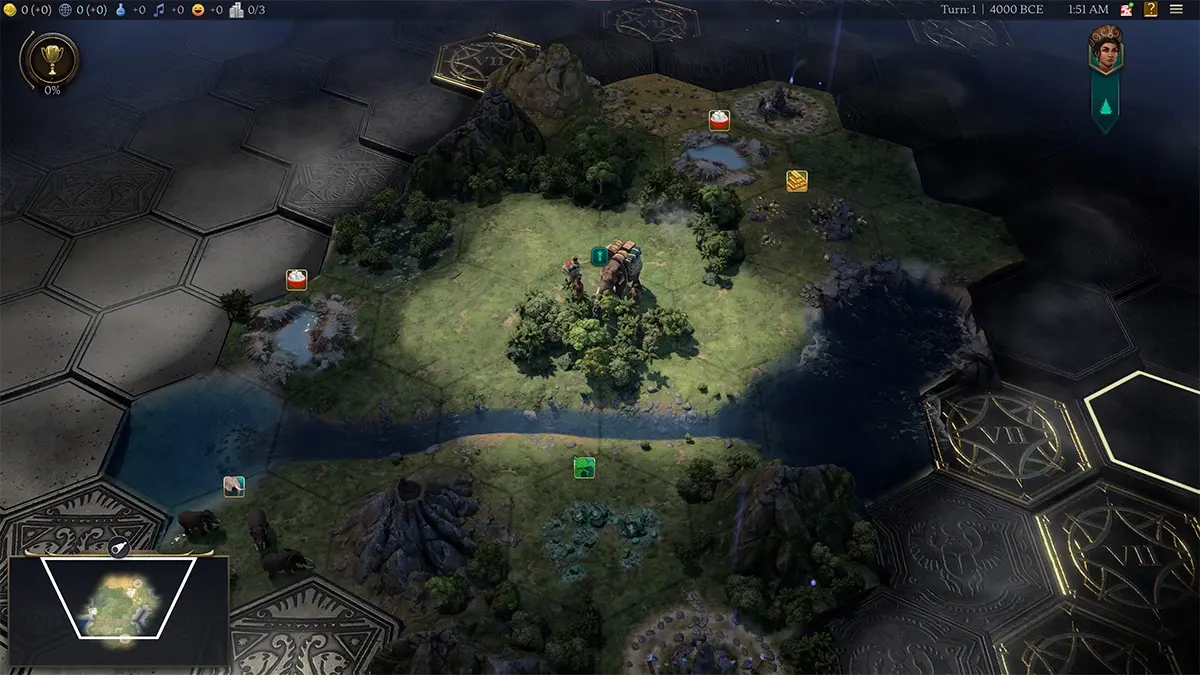
Eager to find out how this new age system works, I started my Civilization VII game with Trung Trac as the leader of the Khmer civilisation in the Antiquity age (Viceroy difficulty, small map). The first thing I noticed in the new game was the updated graphics. The graphics and interface feel polished, and the game has far more elements of realism compared to Civilization VI. The core elements of the Civilization experience are still present in this game from the start: the map tiles are (still) hexagonal, players start off with a settler, and each tile has its unique terrain, yields, and resources.
Some elements of the game also seem a little simpler now compared to Civilization VI. In previous Civilization games, tiles could be worked on to produce certain yields or resources. However, in Civilization VII, tiles can be improved as soon as a new citizen is produced, and here is the best part: you do not need a builder to improve your tiles!
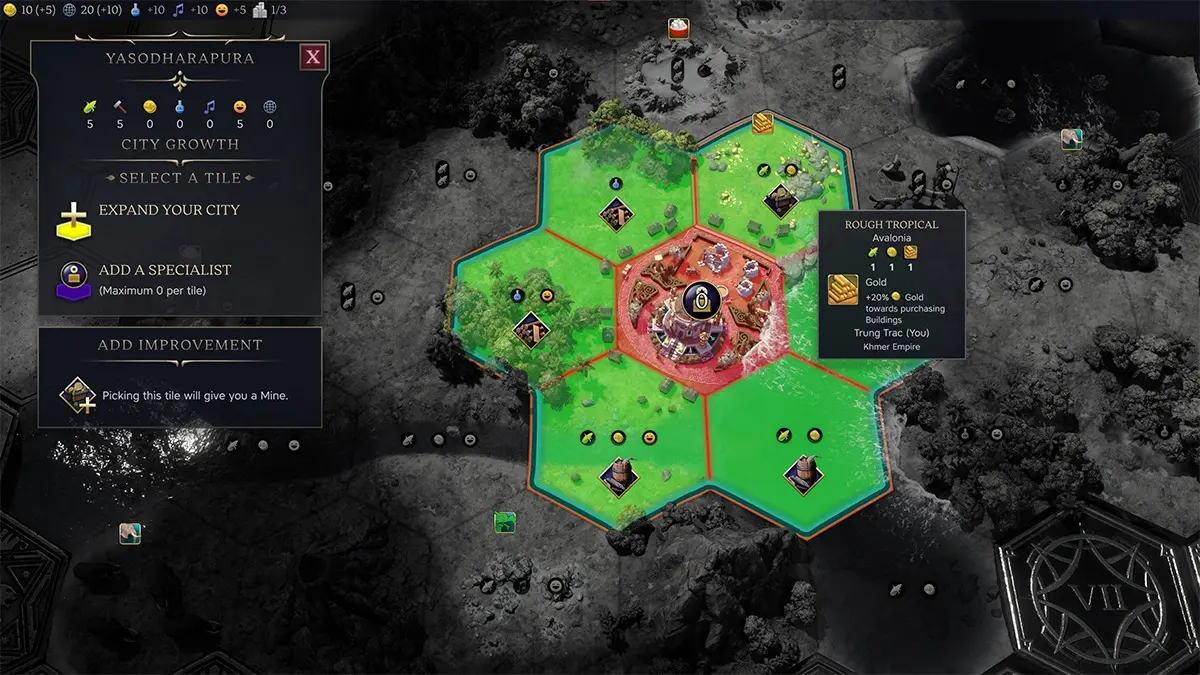
Districts still work very similarly, and you create a district the moment you place a building on a tile. The biggest improvement here is the ability to have two buildings in one district, and have new citizens become specialists in the districts to accrue more yields for the city (at the cost of food and happiness). The yields of the game are also different. While Civilization VII still has the following yields of Culture, Food, Gold, Production and Science, Faith as a yield is no longer a thing. Instead, we now have Happiness and Influence.
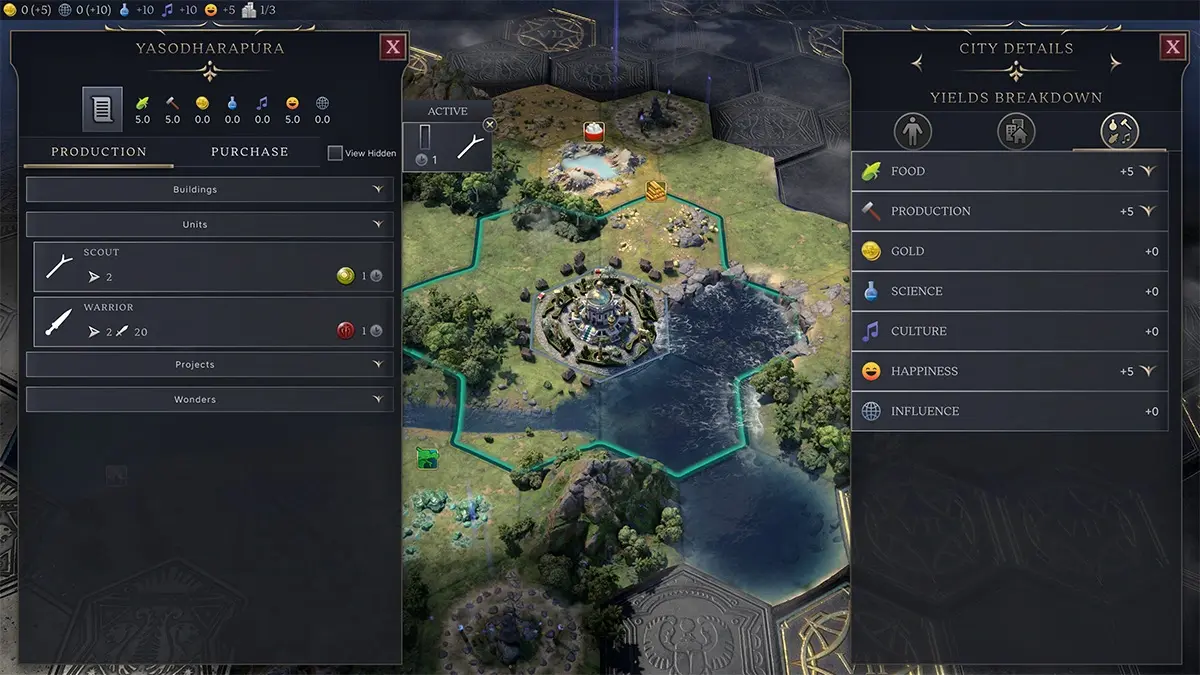
Most of these yields can be obtained by working on tiles, placing buildings, or through other means in the game. The new addition of Happiness makes things much more straightforward in Civilization VII compared to Civilization VI, where the Happiness of the citizens were tied to the amenities present in the cities.
Influence, while present as a mechanic in Civilization VI to acquire envoys, works quite differently in Civilization VII. Any form of diplomacy in Civilization VII requires Influence points, and civilisations elsewhere will always initiate some form of diplomantic action with you. To maximise the benefits of the positive diplomatic actions from other civilisations, you will need to spend Influence points. If you do not have enough Influence points, you will have to reject them and risk upsetting them, or accept a middle ground deal which might not always be great for you.
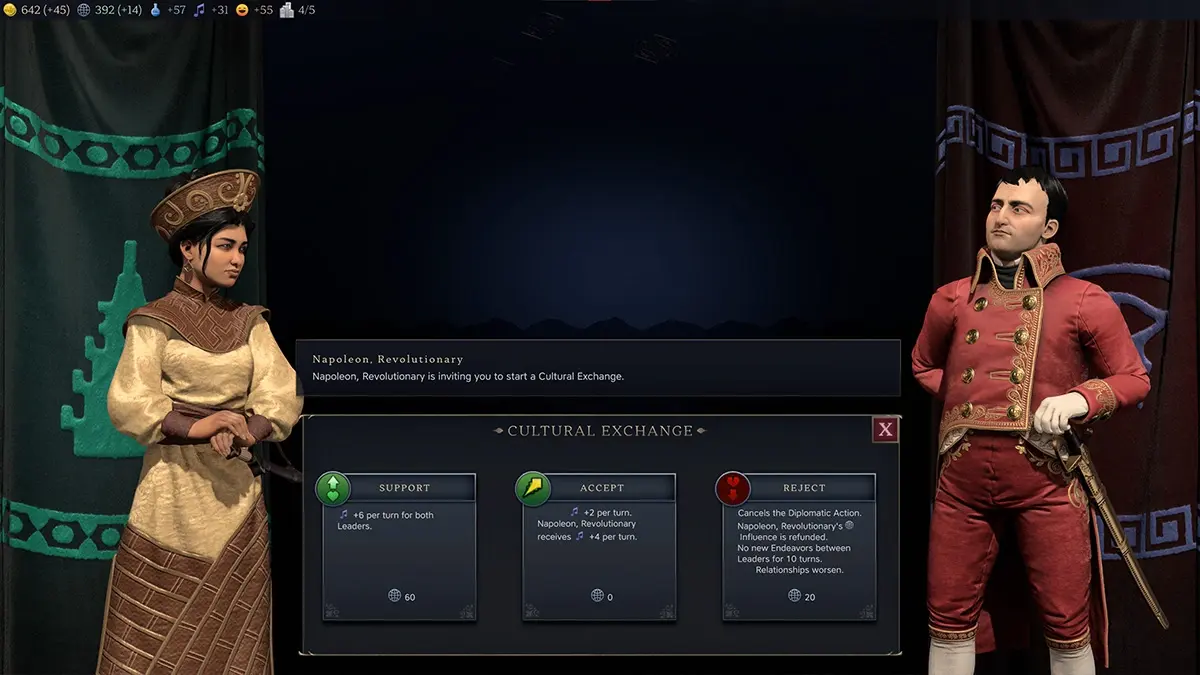
If you want to sanction other civilisations or even spy on them, you will need Influence points, so it is now vital to watch how your Influence points grow and get used throughout the game. The Technology and Civics research trees in Civilization VII also feel very familiar, except that each civilisation now has its own unique Civics tree, and there are different research trees for different ages.
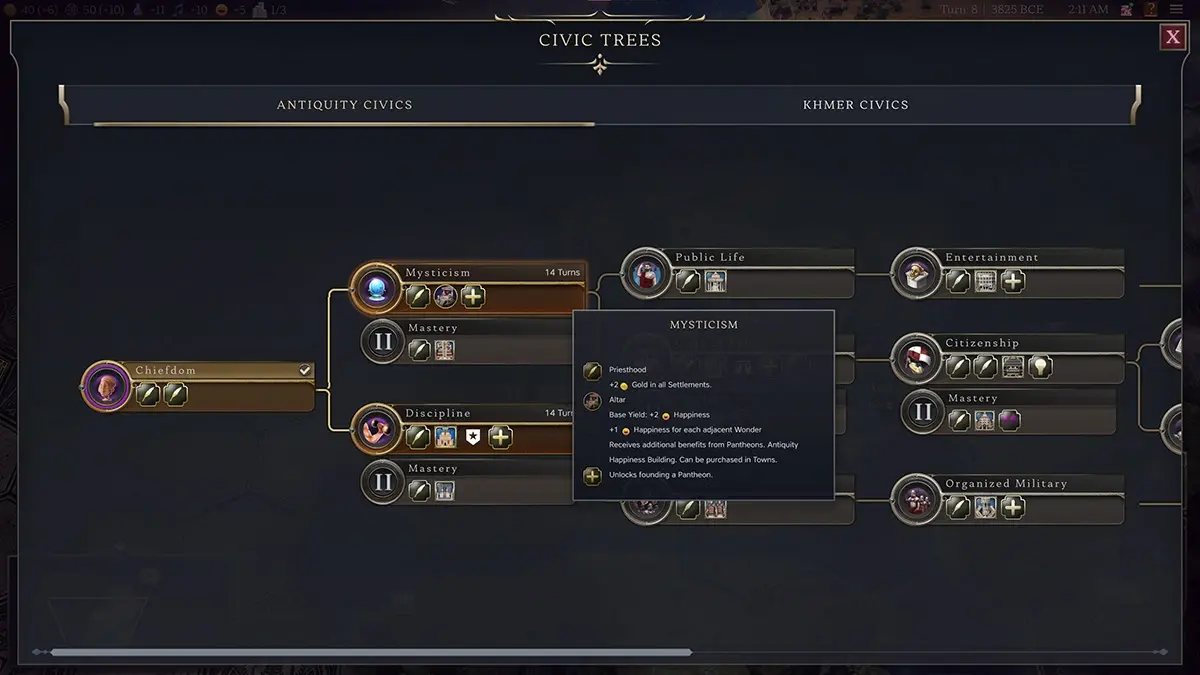
Unlocking the different nodes in the different research trees will add new benefits, as well as social policies that you can implement for your civilisation (when you go down the Civics tree). Governments in Civilization VII are also a lot more streamlined, and choosing a particular government type grants additional benefits every time there is a Celebration. Celebration is a brand new mechanic in the game, and unlocking a Celebration requires Happiness. When that happens, you get an additional social policy slot, and you get to choose one out of two benefits your choice of government provides for 10 turns.
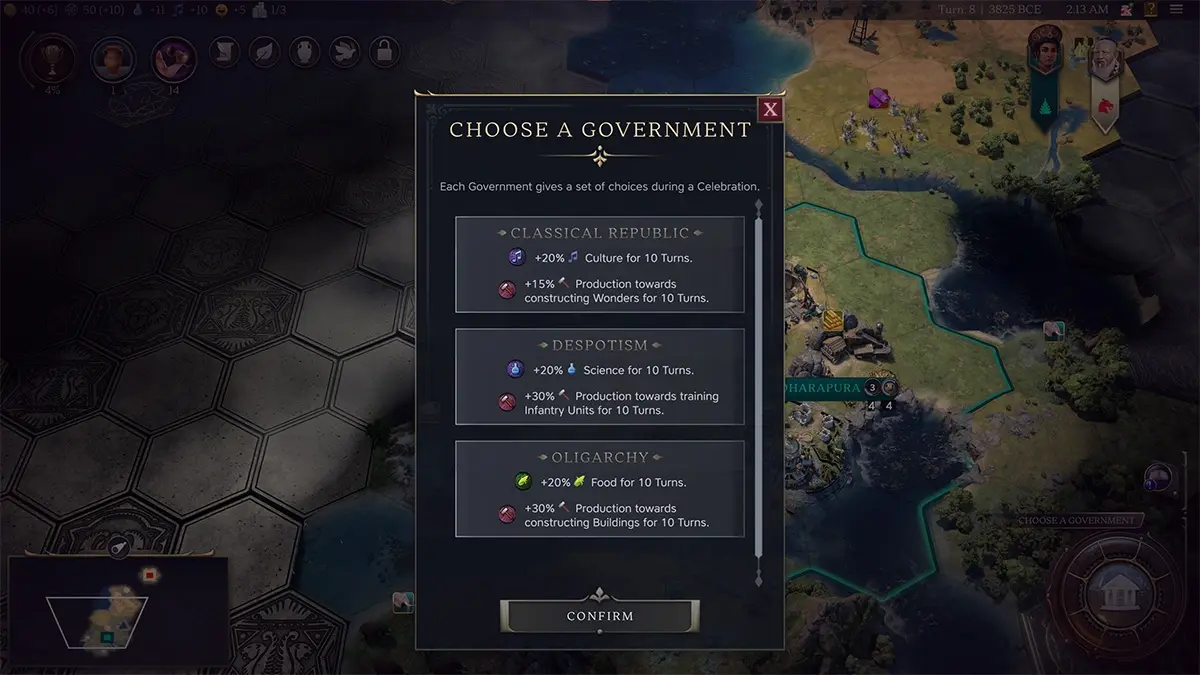
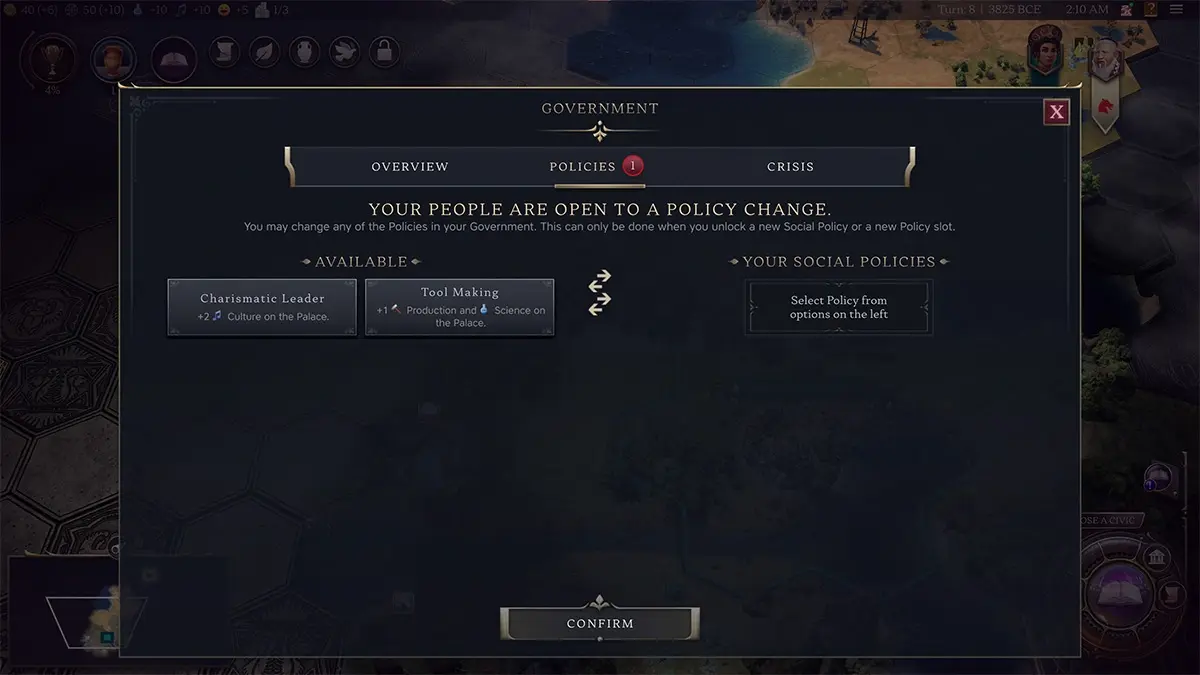
Civilization VII's biggest changes
One of the biggest changes to the game, in my opinion, is the distinction of cities and towns. When you now build a settler and begin a new settlement elsewhere, a town is created instead. Towns, like cities, can be worked on, but there is no production queue for towns. Buildings have to be bought with gold, and towns convert all their production into gold. Towns can specialise the moment they hit 7 in population, and each specialisation gives different benefits. Towns can also be converted into cities with gold, but towns in general require less management, and are an interesting addition to reduce micromanagement in the game.
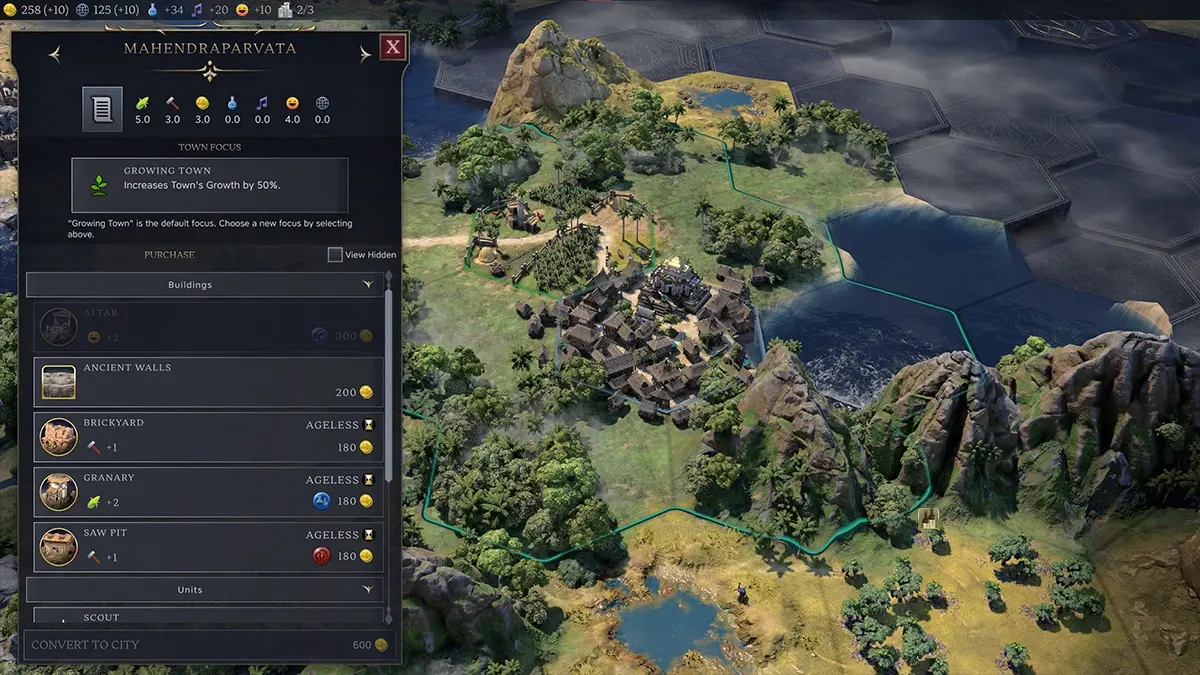
Otherwise, once you get used to some of the changes, the game becomes quite intuitive to play. There are some other new discoveries to be made along the way, like the absence of barbarians and city-states at the start (we get independent powers instead), the addition of army commander, and leader attributes, but the game largely still feels a lot like a Civilization game.
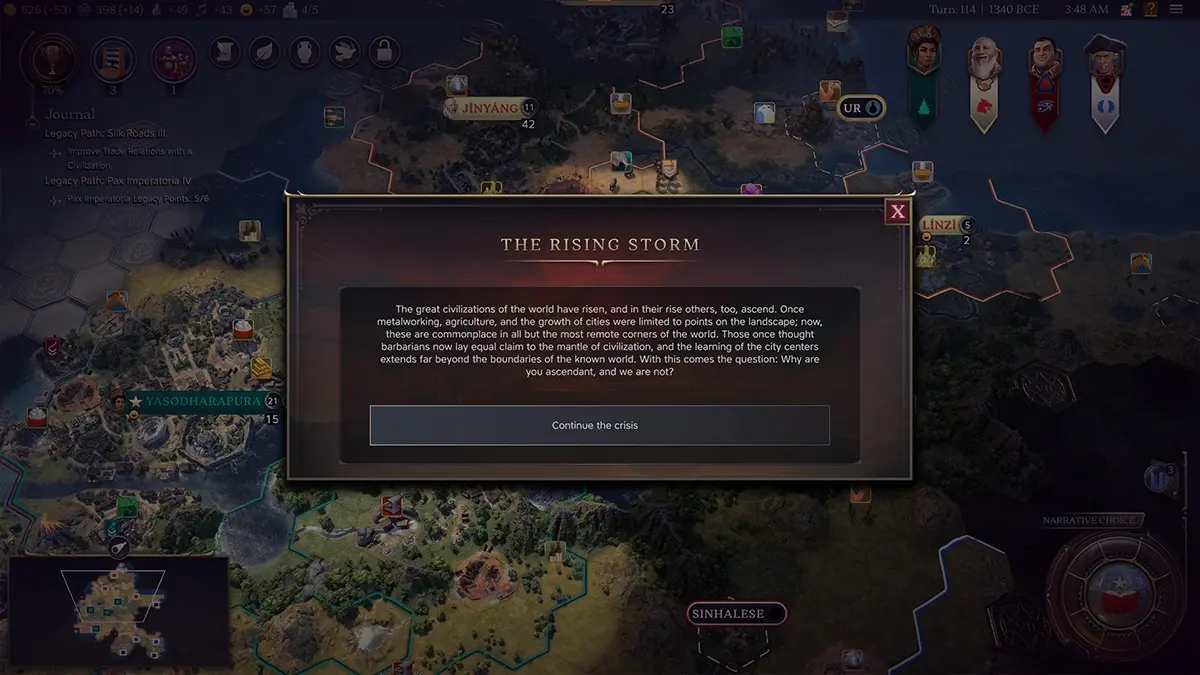
A few turns later (okay fine, 110+ turns later), it was time for the Khmer civilisation to face a crisis. This marked the beginning of the end of the age, and I had to implement crisis policies (similar to that of social policies). The crisis would also escalate, and I had to implement some very unkind crisis policies. In my case, I also had to ward off some very aggressive independent powers that spawned out of nowhere. When the crisis concludes, the age of Antiquity is over and it is time to move on.
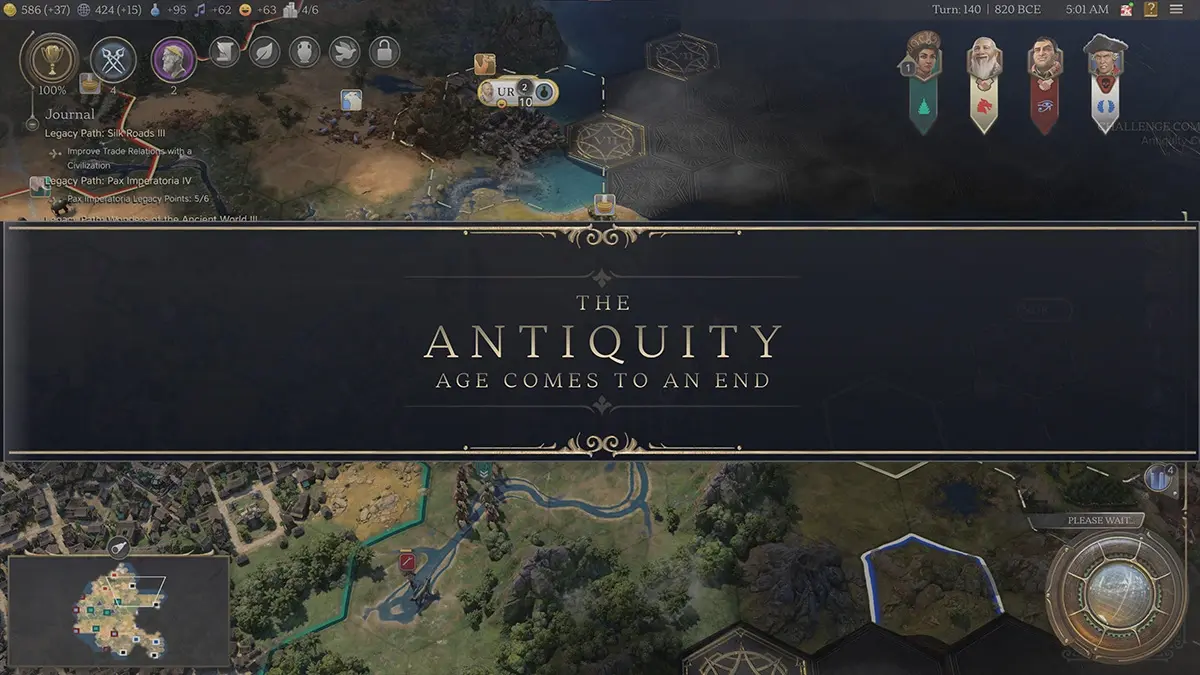
With the end of Antiquity, it is time to choose a new civilisation for the next age. There are certain caveats on what civilisations you can choose in the next age, and it largely depends on what you initially chose for Antiquity, as well as your actions in Antiquity. In my case, I was able to choose to transit to the Ming civilisation because I had slotted eight resources in one settlement in the Antiquity age. Once you decide on your next civilisation, the game then does a small reset, and you are off into the Exploration age.
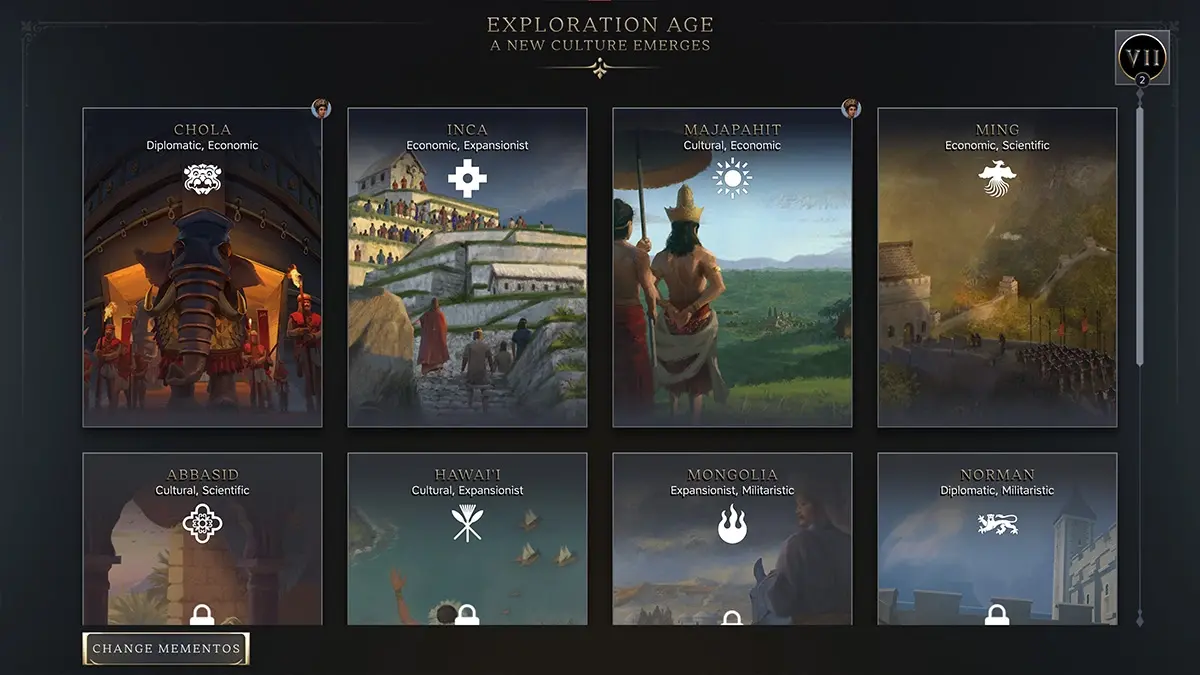
Not everything will survive into the new age (pro tip: try not to have a huge army at the end of an age), but everything else that survives will get a makeover in the new age. You will have new buildings, new units, new things to do, and this is where my first look into Civilization VII ended (or I would not have time to write this preview).
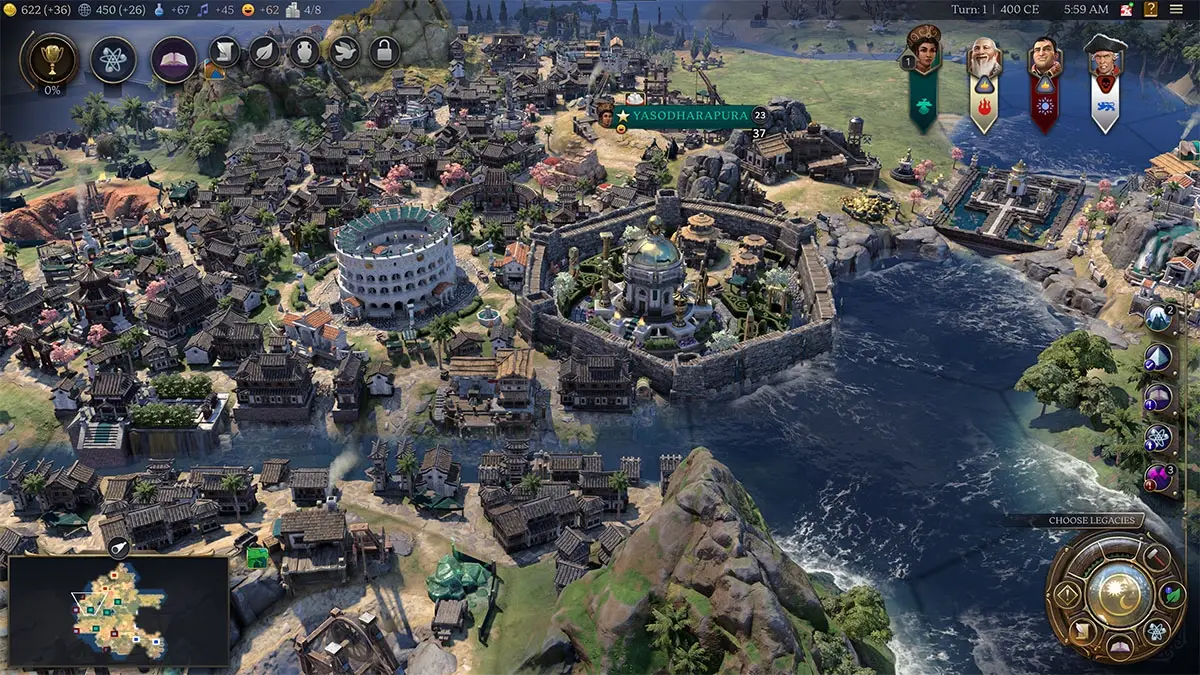
Concluding thoughts from the preview
Now, if you are wondering how players win the game, note that you will only be able to win in the Modern age if you start in the Antiquity age. You will have to complete one of the four legacy paths that coincide with the four modes of victory: Culture, Economic, Military, or Science. I have not gone far enough to experience that, but the addition of these legacy paths will make it easier for you to figure out how you want to win, and what you need to do. Once you complete a legacy path, you will then unlock an ability for victory.
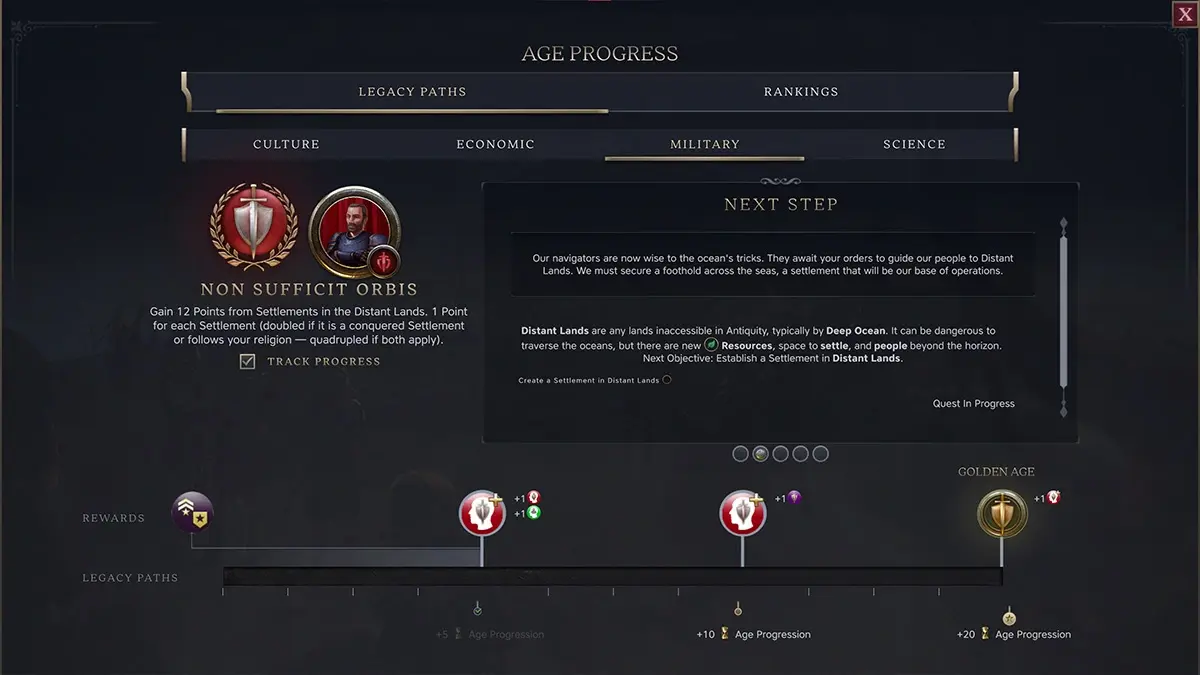
While it seems that you cannot win with Religion or Diplomacy in this game, you can still conquer the whole map and win through domination. In that regard, it is similar to other Civilization games. It roughly took me about 3 hours and 140 turns to progress into the next age, and although I certainly have not uncovered everything new about the game, I found myself enjoying this experience quite a bit, albeit with a caveat.
Civilization VII has, for better or for worse, become a lot more straightforward. The steps to take in the game feel a lot more linear now, and a lot of the previous micromanagement found in Civilization VI is no longer in the game. I found myself actually enjoying this, with its gameplay loop feeling more streamlined.
However, I am still ambivalent about the new ages and changing of civilisations. It felt refreshing the first time I underwent the experience, but the resets made at the start of a different age were a little too jarring. For one, it felt like I was breaking some continuity, and that whole “just one more turn” meme does not apply when there are highly delineated endings. The crisis at the end of an age also felt abrupt, but on the flip side, it also added a lot of intrigue to the game.
There is no denying that Civilization VII marks a new age for the Civilization franchise. It is quite unlike the games that came before it, and yet it still feels so familiar. Either way, Firaxis Games have managed to break the wheel with this new release, and you can safely bet that I'll attempt a victory when it's released on 11 February, 2025.

